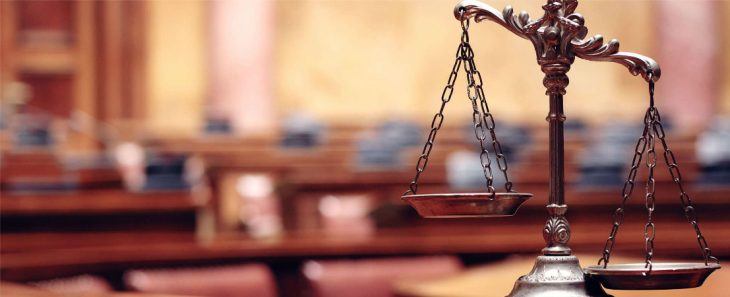Bar group files lawsuit against Arkansas tort reform ballot initiative
by August 29, 2016 5:55 pm 751 views

A group created by the Arkansas Bar Association has filed suit against a proposed amendment that, if approved by voters in November, would limit attorney’s fees and direct the Legislature to set limits for non-economic damages in medical lawsuits.
Fairness for Arkansans, created by the Arkansas Bar Association, announced in a press conference Monday (Aug. 29) that it had filed a lawsuit that day. The case is Nancy Lee Wilson and Paula Jean Casey, individually and on behalf of Fairness for Arkansans v. Mark Martin, secretary of state. Attorney Scott Trotter filed the original action complaint, which goes directly to the Arkansas Supreme Court, and is volunteering his services. He said he would ask that the lawsuit be expedited so it can be decided before the election.
An Amendment to Limit Attorney Contingency Fees and Non-Economic Damages in Medical Lawsuits would direct the Legislature to set a cap of at least $250,000 for non-economic damages such as pain and suffering in medical injury lawsuits and would limit trial lawyer contingency fees at 33 1/3 percent after expenses. The amendment would not affect economic or punitive damages and would not apply to workers’ compensation cases.
The lawsuit argues that the ballot title contains a number of flaws based on its wording. Those include:
• The ballot title fails to inform voters that a jury’s discretion in awarding non-economic damages would be superseded by a cap and therefore diluted.
• The title fails to reveal that the authority of the Supreme Court to prescribe rules for court proceedings is shifted to the General Assembly.
• The title fails to define a number of key terms, including “health-care provider” and “medical injury.” In the press conference, Trotter said the amendment, but not the title seen by voters, lists professionals that would be covered, including psychologists and veterinarians.
• The Legislature would further define the terms of “health-care professional,” “health-care-business” and “medical injury” through law. Trotter said the Legislature could expand those terms.
• The amendment and the ballot title fail to define “non-economic damages.”
• The ballot title does not reveal that the amendment gives important powers to the Legislature to set how damages are calculated.
• The title doesn’t reveal that the amendment authorizes the General Assembly to enact laws to govern the consequences and penalties for attorneys, an authority that has been under the Supreme Court’s Committee on Professional Conduct.
• The title doesn’t reveal that the amendment establishes an exception to the current constitutional prohibition on the Legislature limiting awards in cases involving injury and death.
Rachel Davis, executive director of the Arkansas Health Care Association, which represents nursing homes, said in an email, “This lawsuit doesn’t surprise us, it’s merely a tactic to try and stop Arkansas voters from having their say on the issue of getting these excessive lawsuits under control. The ballot title clearly says what the amendment does, and we expect the courts will agree.”
Denise Hoggard, president of the Arkansas Bar Association, said the ABA’s House of Delegates had unanimously voted to oppose the measure without debate and she was joined by 14 past presidents of the ABA. Fairness for Arkansans’ statement of organization was formed Aug. 26. She said businesses would have full rights in court while individual citizens’ rights would be limited.
“For the first time in our history, Arkansans are being asked to let the Legislature hamstring a jury of his or her own peers when rights have been violated,” she said.
